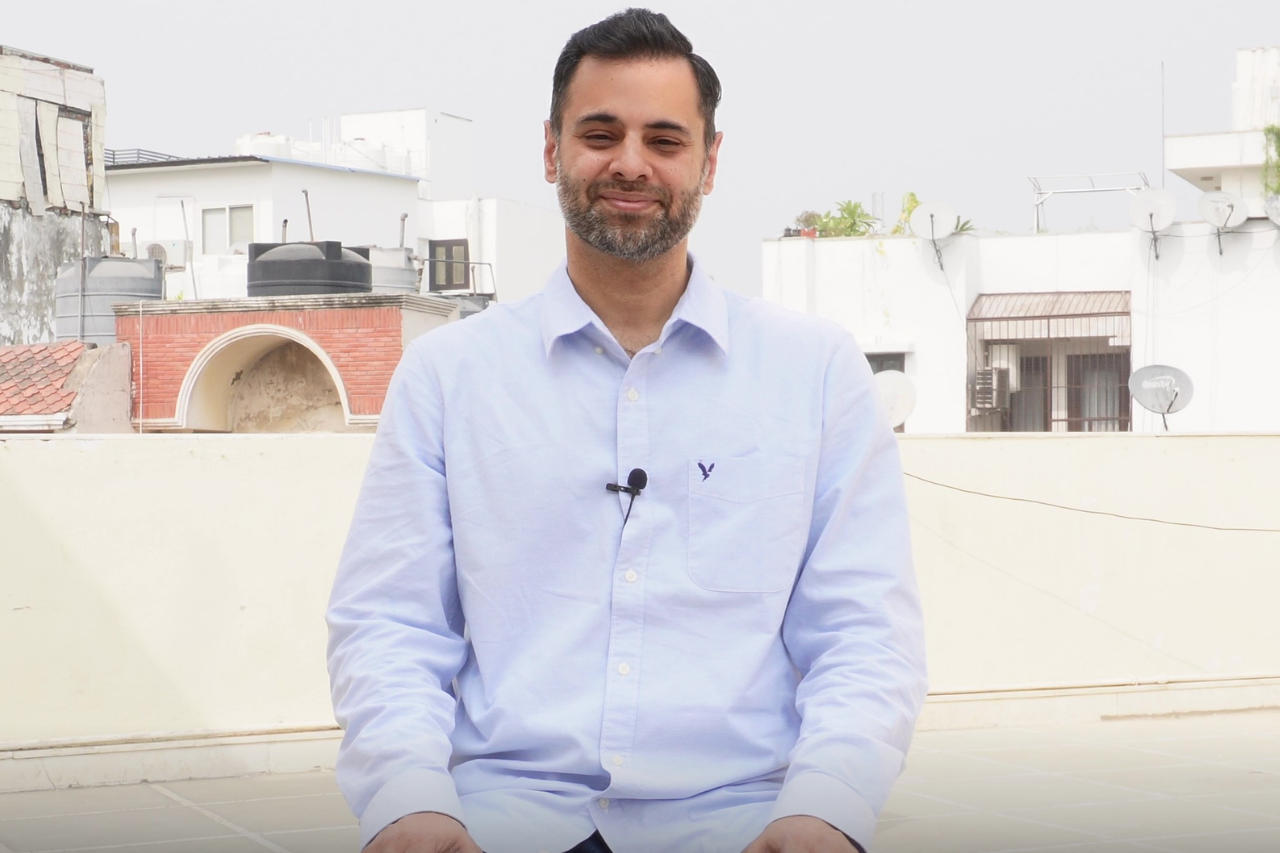Q. Does life really take care of life? What is our role as parents then, especially in times when a child goes through emotional stress?
Do we seek solace in knowing that he or she will be looked after by that one universal force, or do we intervene? We can hardly judge right from wrong with our limited intellect…there apparently isn’t any good or bad…so what do we do?
How is attachment different from being responsible? How do you be responsible for your child without growing attached (knowing attachment to be different from genuine love) to him or her?
A. We as a society have completely isolated ourselves from the reality of the present moment or now. We fancy the world of ideas, concepts, and beliefs and miss out on what life has to offer in this moment.
We remain so concerned about the future that we miss out on the joy of being present. We seek answers to problems that originate from low consciousness. So every answer leads to a set of different issues, and in frustration, we find something on the outside to blame. If nothing, we blame life for being hard.
We have raised the survival bar so high that it’s bound to create psychological ailments in children. It’s making them ego-sensitive as opposed to life-sensitive. It is our fear that is crippling children. I know this sounds harsh, but we’re bringing up a generation that is entirely detached from their emotional center.
Without emotional development, intellectual progress is meaningless. An individual, no matter how intelligent but with unregulated emotions, will always suffer and create suffering for others. Behind a violent man is not a twisted mind but an injured heart.
Children, by nature, are inquisitive and creative. However, we as parents are always eager to enforce our line of thinking onto them. We unconsciously project our deepest fears, and our children are the first victims.
This unconscious behavior has been going on for ages, passing from one generation to another—every generation sacrifices for the next for a better future without enjoying the peace of the present moment. We reject what is available in the present moment for a future fantasy.
It’s not what we “do” for our children but rather how we behave in their presence that matters. Children observe us. They watch our every move. They sense our mood from the way we communicate with them.
I never tell my children what to do. I set an example by living the concept. And I give them the freedom to choose and explore. For instance, I never demand that my children meditate, study, or read, but they follow, seeing me do all of that.
The problem is when we force children to follow rules that we don’t follow ourselves. Another example is that we teach children to respect others, but how much respect do we ourselves show towards others? When children see contradictions between words and actions, they reject the teaching.
That said, it’s every parent’s job to be responsible and give their children the tools to navigate life efficiently. So do whatever you think you should do for your children. However, it should be from a place of love and not fear. How much of it will help them is their destiny.
According to Dr. Gabor Mate, children have two fundamental needs: authenticity and validation. Both of these require high awareness in parents. If the parents are confused and not in touch with their inner feelings, thoughts, and emotions, it’s unlikely they’ll be any good to their children.
Sometime back, a distressed couple approached me complaining how their son was behaving unruly and fighting with peers in school. The parents were arguing and blaming each other in the child’s presence.
They were so focused on how their child was the problem that they were unwilling to explore the idea of their unconscious behavior. Are the parents at fault here? No. It’s simply unconsciousness in the form of fear.
An unconscious attachment with the child creates suffering for both the parent and the child. A conscious attachment, on the other hand, is not egoic. It enables us to give without expectations.
In unconscious attachment, we seek validation through our children that we did not receive from our parents. The couple I mentioned above was not actually worried about their child, but how the child was making them look bad. It’s like children having children and teaching them how to be good.
A conscious attachment is secure without fear and anxiety. It enables the child to explore, make mistakes, and become independent. Playfulness is the natural state of children.
It is a state of the highest creativity. But authorities like the education system destroy playfulness and creativity by subjugating the child’s minds through fear. The parents, who are fearful themselves, further encourage this behavior from authorities. It’s all about the little “me.”
When the ego speaks, only the ego on the other end listens. When parents become authoritarian and make unreasonable demands, the child suppresses or represses the anger. That anger is turned inwards and pushed into the shadow.
The child compensates for feelings of helplessness with maladaptive behavior like shouting, screaming, aggression, bullying, throwing tantrums, and more. It is a defense mechanism. When carried into adulthood as the wounded inner child, such behaviors become toxic.
The ego believes that it can change things by “doing” something about the situation. Therefore, it thinks that “I should be less attached.” The paradox is that although the mind desires freedom at the surface, its very nature is to create attachments deep down.
The universe indeed looks after the children. In fact, it takes care of every piece of life. However, the universe is not obligated to give us what we want. It gives us what we need, which may not be our most ideal choice.
Most people have to go through hardships and traumas while navigating life. Every event, good or bad, is a pointer to the source or the true self. We can intervene, but there’s no guarantee that our intervention will have the desired outcome.
A child’s emotional state depends a lot on the decisions that the parent takes for him or her. Those decisions come out of the past conditioning and the decisions their parents took for them.
So it’s difficult to know what’s right or wrong because the impact of those decisions on children depends on the parent’s level of consciousness. We can never be perfect parents because imperfection, in and of itself, is a core characteristic of phenomenality.
With self-investigation, we become aware of the roots of our attachments, and ego-mind realizing the futility of doership gives up. True surrender is acceptance of the imperfection of life. When that happens, the ego dissolves along with its worries, and what remains is the peace of stillness.

